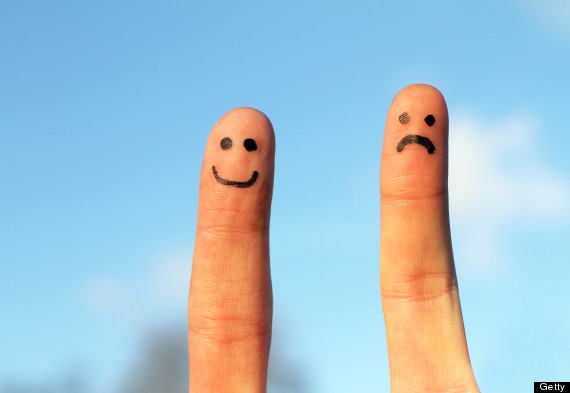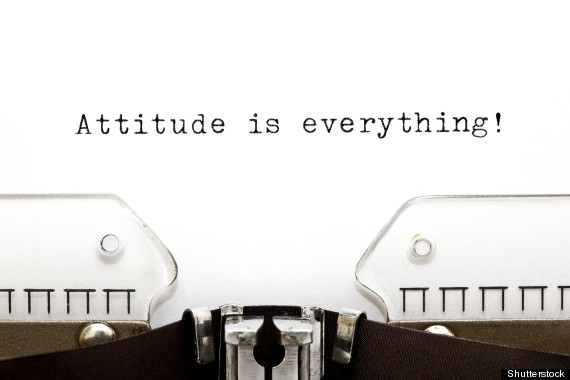How To Bounce Back From Failure

Rejection is rough, no matter how you slice it. But it's also an inescapable fact of life, and our ability to deal with failure and rejection has a hand in determining how successful and happy we are.
Happiness isn't the opposite of depression -- resilience is, according to psychologist Peter Kramer. Think of the people you most admire -- many of them didn’t get where they are just by sailing through life without any negative experiences or failures. Most of them distinguished themselves by their ability to get right back up every time they fall, a truism reflected in countless inspirational quotations on the power of perseverance (In the words of Winston Churchill, "It is the courage to continue that counts.").
So how do resilient people differ from those who become paralyzed by every failure and setback?
Here are seven habits of highly resilient people -- and ways that you can improve your own ability to cope with challenges.
They fully experience both positive and negative emotions.

Building resilience isn't about blind optimism. Rather than looking only on the bright side and pushing away negative emotions, resilient people let themselves experience what they're feeling in any given situation, whether it's good or bad, according to Positivity author Barbara Fredrickson.
“The resilient person isn’t papering over the negative emotions, but instead letting them sit side by side with other feelings," Fredrickson told Experience Life. "So at the same time they’re feeling ‘I’m sad about that,’ they’re also prone to thinking, ‘but I’m grateful about this.’”
They're realistically optimistic.

A recent Taiwan National University study found that adopting an attitude of "realistic optimism," which combines the positive outlook of optimists with the critical thinking of pessimists, can boost happiness and resilience.
"Every time [realistic optimists] face an issue or a challenge or a problem, they won't say 'I have no choice and this is the only thing I can do,'" researcher Sophia Chou told LiveScience. "They will be creative, they will have a plan A, plan B and plan C."
They "reject rejection."

Rejection chips away at our self-esteem and confidence, making us fall harder with each subsequent setback or failure, Elaine Dundon, founder of the innovation group, said in her TED Talk on the subject, adding, "Rejection also steals our joy."
But rejection is inevitable, and coping with it effectively is essential to becoming resilient. As HuffPost blogger Alex Pattakos puts it, choosing to reject rejection can ensure that "you don't become a prisoner of your own thoughts.”
"It's important to understand that everyone is in a different 'space' and, in some cases, no matter what you say or do, they will always reject you or your ideas," says Pattakos, explaining that taking this mindset helps you to not take the rejection personally.
They build strong support systems.

When you get knocked down hard, it's important to have the resources to help you get back up again, which includes having people to lean on. A 2007 study found that social support can actually boost resilience to stress.
They notice (and appreciate) the little, positive things.

Resilient people are good at tapping into their "positivity ratio,” according to Fredrickson. This means that they notice and appreciate the little joys and victories -- which keeps them from feeling like "everything" is going wrong. Her research has shown that a three-to-one ratio of positive to negative experiences is ideal for building resilience and boosting happiness.
They seek out opportunities for growth and learning.

Resilient people seek out growth experiences that boost self-reliance and individual decision-making skills, which gives them confidence in their ability to bounce back from failure.
"As a sense of competence increases, individuals are better able to respond effectively in unfamiliar or challenging situations and persevere in the face of failures and challenges," Kathleen M. Sutcliffe and Timothy J. Vogus write in Organizing for Resilience.
Those who have mastered the art of resilience know that setbacks and challenges can be our most powerful learning opportunities. Some of the world's most successful people have been fired from their jobs, and used the experience to learn something about themselves.
"I worked for American Harper's Bazaar... I got fired," Anna Wintour once said. "I recommend that you all get fired, it's a great learning experience."
They're endlessly grateful.

Gratitude is known to boost health and well-being -- and those who are thankful may enjoy better physical health and mood than those who focus on hassles and complaints.
“I got grateful when I got fired,” Sallie Krawcheck, formerly one of Wall Street's most powerful female executives, explained at The Huffington Post's women's conference, "The Third Metric: Redefining Success Beyond Money and Power." “I said ‘How many people get to get fired and it’s on the front page of The Wall Street Journal?’”
Krawcheck says that gratitude not only helped her deal with being fired, but it also helps her keep life's everyday stresses in their proper perspective.
"How do I get through it all?" said Krawcheck. "I'm endlessly grateful."
This article is reprinted here with permission. Carolyn Gregoire is a features editor at the Huffington Post. She has spoken at TEDx and the Harvard Public Health Forum, and appeared on MSNBC and The TODAY Show.​ More from the Huffington Post Good News Channel:
We Need Schools ... Not Factories
SHARE YOUR REFLECTION
8 Past Reflections


On Aug 23, 2015 BurnWitchesBurn wrote:

On Jan 23, 2015 Chaser Xaviour wrote:
1 reply: Kibitzer3 | Post Your Reply

On Jan 23, 2015 Guest wrote:

On Jan 23, 2015 Guest wrote:

On Jan 23, 2015 Guest wrote:


On Jan 2, 2014 Kristin Pedemonti wrote:
Agreed! I liked the realistically optimist description! that's me to a "T" :) Gratitude and enjoying the little things goes a long long way in helping one remain resilient. thanks for another uplifting article! YOU keep Me resilient! HUG

On Sep 18, 2015 Nancy Austin wrote:
Agreed, this article is high in fluffy feel-good pap. It's the sort of thing that can be agreed to when a person is feeling pretty good, but if I were in the midst of a period of depression, I'd find most of this article useless, annoying and/or insulting.
Post Your Reply